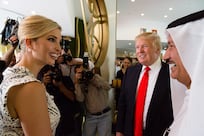Saudi Electricity disappointed analysts yesterday when the state-controlled producer said fourth-quarter losses had widened amid higher energy costs.
Net loss in the period ended December 31 rose to 514 million riyals, compared with a loss of 324m riyals in the last quarter of 2010. A consensus of analysts polled by Reuters had estimated a loss of 155.3m riyals for the electricity company.
"The decline in profits over the past 12 months is due to higher costs of consumption and purchased energy and the reason for the net loss in the fourth quarter is due to the rise of consumption costs," the company said in a statement to the Tadawul exchange.
Saudi Arabia, where the population has quadrupled over the past 40 years, is struggling to keep up with increasing power demand as the kingdom seeks to diversify its economy away from oil. Demand for energy has been rising by 7 to 8 per cent annually, helped by expansion in cement and petrochemical industries.
Saudi Electricity's results are a function of seasonality, said Tariq Al Alaiwat, an analyst at NCB Capital in Riyadh. "There is less demand in the winter because air conditioning is used less, but the results are still below expectations," he said.
Independent power producers, which have long-term contracts with Saudi Electricity, have been charging more to supply power, said Mr Al Alaiwat. "However, the company has been unable to pass on the rise in prices to its end-users."Mr Al Alaiwat has a neutral rating on the shares, with a target price of 14.7 riyals.
Saudi Electricity's share price fell 0.3 per cent to 13.5 riyals.
The company plans to increase its production capacity to 80,000 megawatts by 2020, from 50,000 currently.Ali Al Barrak, Saudi Electricity's chief executive, said last month that the company planned to start an electricity transmission subsidiary and break up into six companies to "encourage competition".
[ halsayegh@thenational.ae ]




